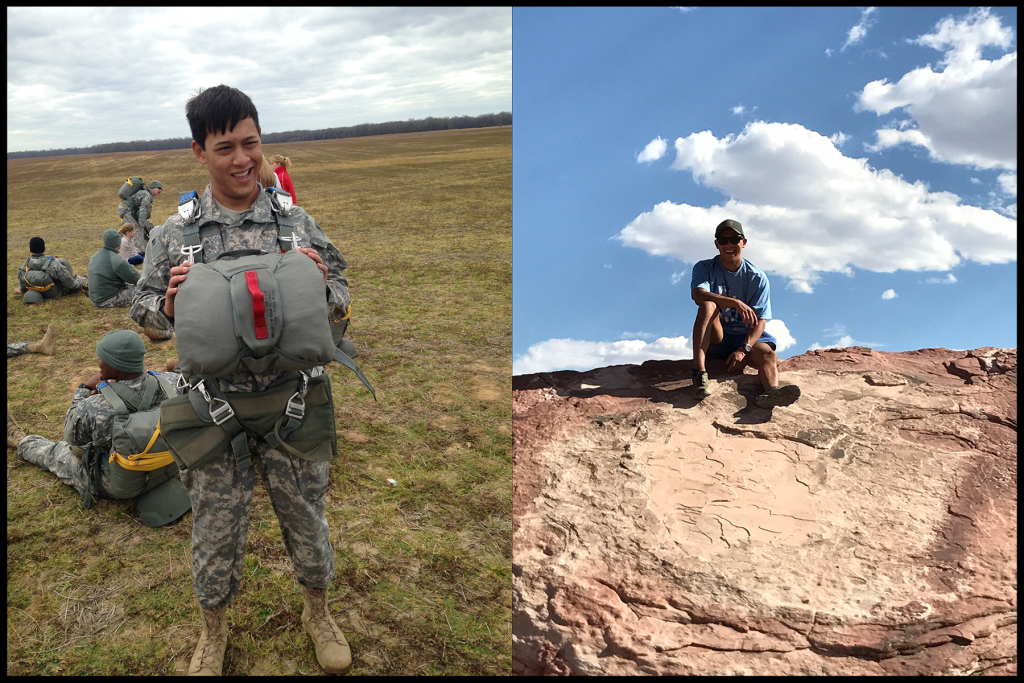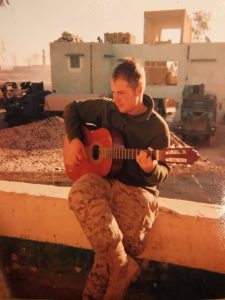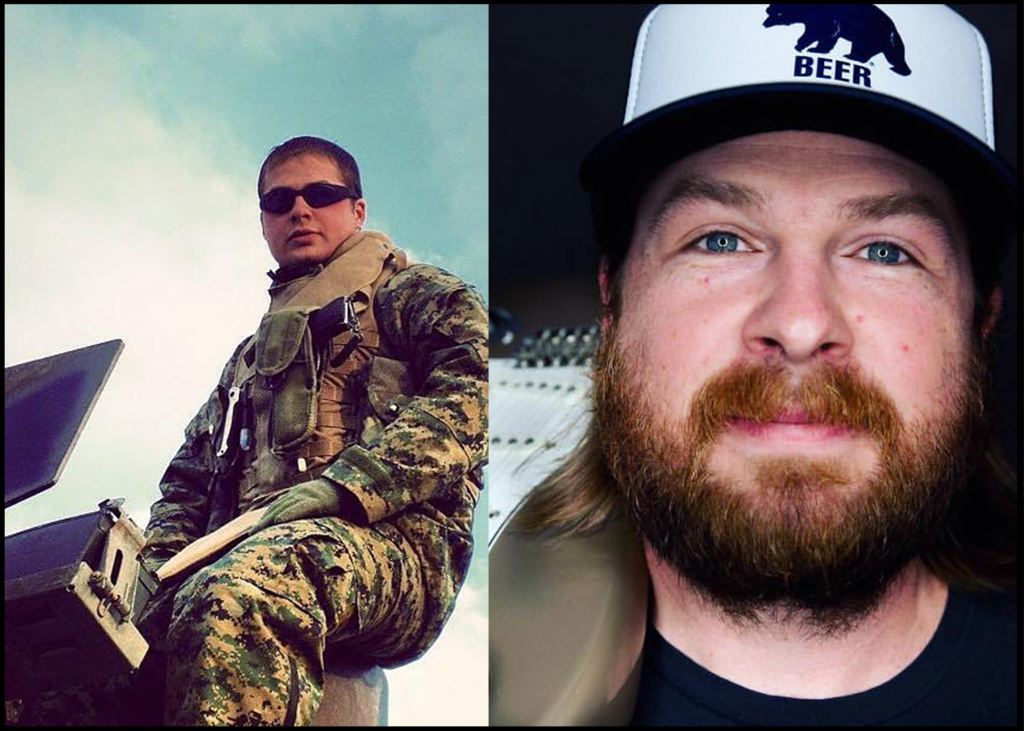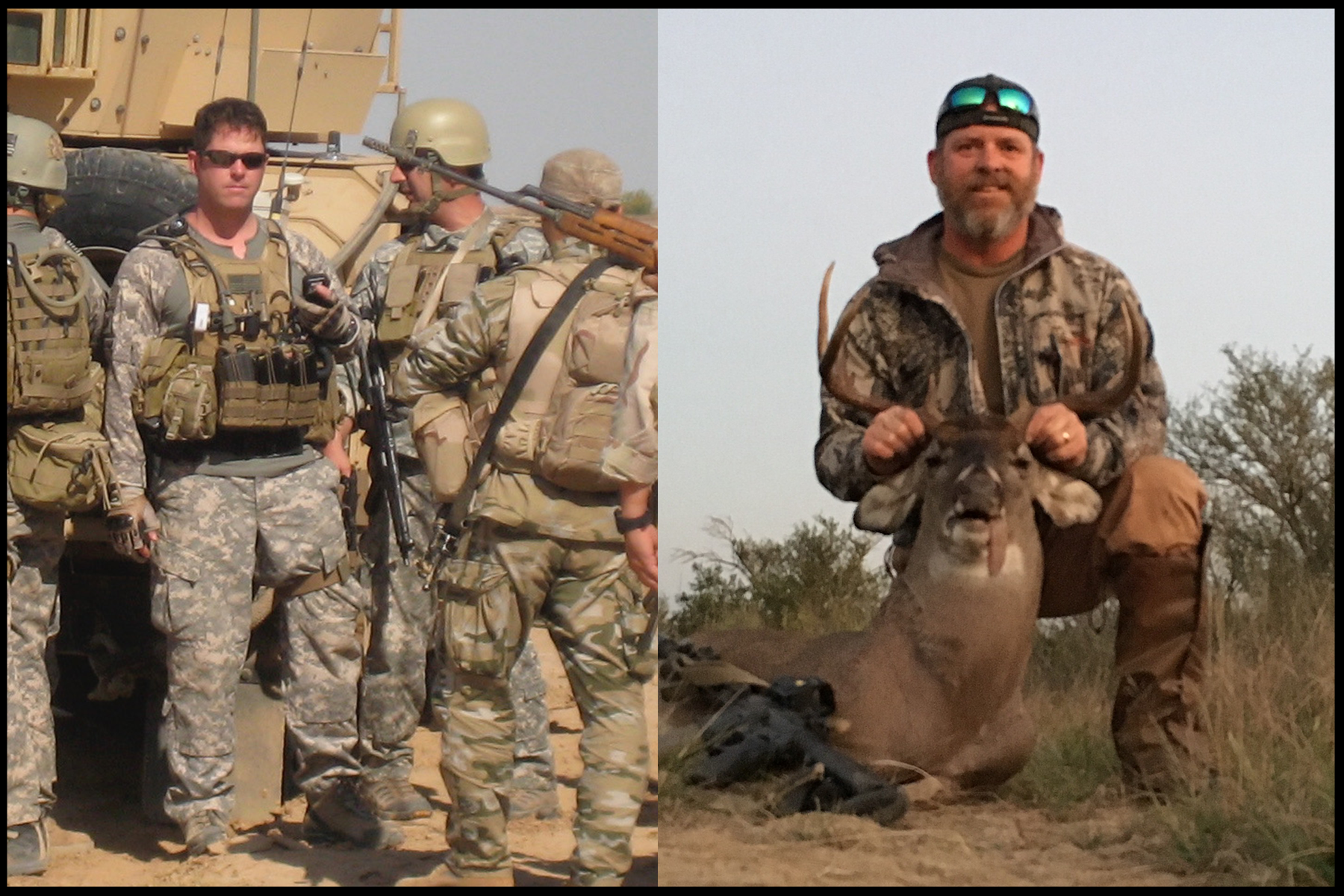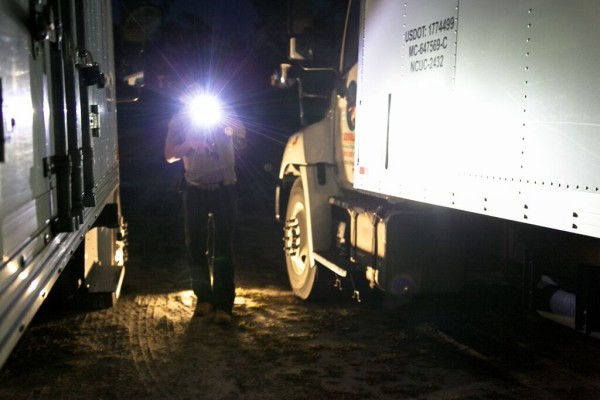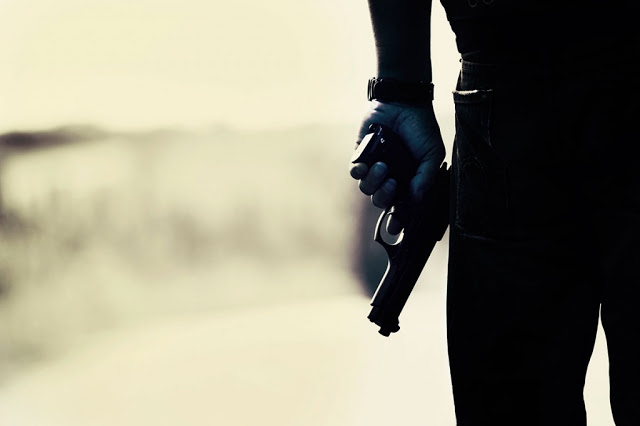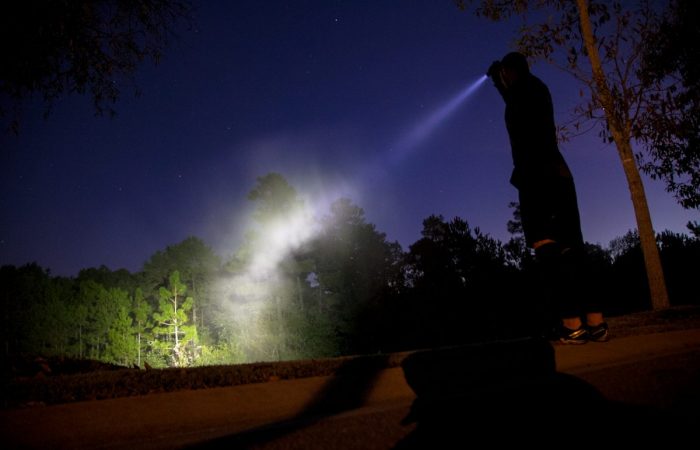It truly is an honor that we get the opportunity to celebrate our United States military veterans. Each year on November 11th, American’s get the opportunity to say thank you to those who gave the ultimate sacrifice for our freedom. Not only is it a day to say thank you, but it’s also a day that war-buddies, combat veterans, active duty and reserves military get to reminisce about how they got through each day together.
We think that is truly beautiful. So, this Veterans Day, we decided that we wanted to hear some of these stories that civilians don’t normally hear about. Luckily, we were honored to have three veterans willing to tell us a couple of stories over the phone, two Army National Guard Green Beret veterans and one Navy Medic veteran. Of course, we also had to ask them about their favorite gear, too.
We want to wish each and every United States Armed Forces combat veteran a very Happy Veteran’s Day. Thank you for your service and thank you for keeping our beloved country the Land of the Free because you are what makes us the Home of the Brave.
• • •
How did you get into equipment and gear?
That would be when I originally started hunting as a kid. I always needed a good knife to skin a deer with so I really enjoy a good blade.
Do you remember a specific hunting trip when you felt like you couldn’t live without your gear?
No, that would have happened when I was in the military. You know, like, when I have this cool light that is attached to my weapon, that is tiny and it’s 100 some-odd lumens. I’m still just baffled by how awesome this little flashlight is and the fact that it opens up half the mountainside to me. Then, IR (infrared) lights, as well. The fact that all I had to do was put a little cover on whatever light I’m using and it helps brighten the sky is mindblowing to me still. Without IR light, it’s harder to see things. Now, you do pick up ambient light, which, is what allows you to see most everything but if you want to see further and make things appear brighter, you use IR light.
I’ve enjoyed my knives, I’ve enjoyed every bit of equipment I’ve had ever since I joined and even before then. One of those times, that I felt like, “I couldn’t have done this without my proper equipment,” was when I went on my first mission. I’ve got my knife on my kit, flashlight on my left end, and that’s sort of how I’m rolling through things, but you never realize how much you appreciate something until it goes missing, or until the battery on it dies. That would have been me whenever I had to open something up, I don’t remember what it was, and my knife fell off of my kit somewhere when we marched up a hill, so I knew how much that SUCKED.
Luckily for me, one of my buddies came up to me and said, “Hey man, is this your knife?” and I was like, “oh, thank god,” and he said, “yeah, you dropped it about a mile back there and I wanted to wait until you actually needed it to let you know you need to secure your stuff better.” That was a pivotal moment where I realized, “I need this on me at all times,” it didn’t matter if I had some kind of alternative where I can rip into something, but that knife was really just going to get me through whatever I needed it to. That was definitely one of those moments and as a whole, during my missions, I was really happy to have, and always made sure that I had my knife close to me. I literally bought a pouch for my knife after that to make sure it stayed where it was supposed to and so it wouldn’t go anywhere. It made it a little harder to get to, but again, when I needed it, I knew exactly where it was.
As for my flashlights, you know, when you can’t see and you’re able to light up a mountainside with a flashlight, it makes it really nice to have. One night, when we took sniper fire, we couldn’t see anything. We couldn’t see where he was because it was dark and we had lights on us because it was in our camp. One of my buddies used one of those massive IR lights that was on a .50 caliber and that allowed us to see where he was and it was extremely helpful. It eliminated the threat immediately and helped keep us safe.
How else did you use your gear in the military?
I never had to use my knife for a close quarters engagement, you know, I never had to use it on somebody, which was nice. But, it’s really just the utility that you get with a knife that is beyond comprehension. It’s something that could be so pivotal at certain times because it’s more than just a knife. You can do so much with a knife that you don’t even think about until you really need it. Like, you need to pry something open? Well, then you have a knife to do that with. Having a good, strong blade is what allows you to do that.
Since you were so dependent on them in the military, how did you take that mindset and apply it to your everyday life now?
I always have a knife on me that is apart of my everyday carry. I’ve always got a knife on me for whatever situation I might need it for. I also keep one or two flashlights in my vehicle. You only ever need it when it’s dark but I always seem link I need it the most in my vehicle. Don’t get me wrong, my phone has a light on it but it’s never up to par whenever I need a light.
What else do you carry with you that is essential to your lifestyle?
I’ve always got a lighter because you never know when you’re gonna need one and it’s always good for something. Whether you’re lighting someone’s cigarette or somebody needs one, you just never know. Always having that lighter is important.
I know in my little plug out bag I’ve got tons of medical equipment, fire starter, pressure bandages. Anything that you really hope you never need, but that’s exactly why you carry it. Same thing with a really good flashlight. I never really want to have to need my flashlight but I’d rather have it and it’s the same thing with my knife.
What made you decide to join the military?
For me, it was something I always wanted as a kid. That truth to me was reinforced on September 11th, 2001. It was such a long time ago but it was just that memorable to me. I still remember, to this day, getting home from school and being confused because I didn’t understand what exactly was going on, but I knew that there were bad people in this world doing bad things to innocent people. I wanted to do whatever I could to prevent that from happening. If I could prevent someone in my family from joining, by me joining, I was more than happy to do it.
That was pretty much the all defining moment for you? You knew in that moment that you wanted that for your life?
Yeah. It’s something that I enjoy because I love to work with Special Operations and a community that is extremely helpful, extremely active, a whole lot of go-getters and bullheaded, strong people that wanted to fight the enemy. Luckily, that was something I was given just by joining. If I could have been apart of a better organization, I still wouldn’t have traded it for the world. That’s how much I loved it.
How did you progress through the ranking system?
I started out as a private first class, I did ROTC in high school so it was an automatic promotion. By having really good physical training scores in basic and AIT (school), along with airborne school, that’s a lot of extra bonus points to help you move up in rank, and also going to a lot of extra courses. I think within the first six months of me being within my unit, I was gone well over two months of that first six just on training courses alone.
Having the opportunity to go to these classes that you may never need, I mean, I had a desk job but I went to Mountain Warfare School and it was one of those, “oh you’ll never need that” type of thing. Well, turns out I did. Learning how to survive in a very hostile environment, knowing what to do and what not to do, can save your life.
I went to those technical courses so I could be better at my job and help my team. Like I said, I was lucky enough to be placed on a team of Green Beret’s to help enable their missions and that really helped out when being promoted to Specialist. Unfortunately, I didn’t get Sergeant. If I had stayed in longer, I’d probably be a sergeant right now. But, due to the movement, it’s not always easy to get. I like to be very confident in myself and think that I would have done it if I had stayed in.
What made you decide to leave?
It was just really important to me to get my degree from the University of Mississippi. For a while, I was doing both but it wasn’t sustainable for a college student. I was gone for an entire month one semester because I was taking extra training courses. It’s so difficult to pick up your course load after that and professors weren’t very helpful. Especially, when you’re missing test weeks and there’s nothing you can do about it. You have to go where the Army tells you to go, too. Otherwise, you might be considered AWOL. It’s unfortunate because I did love it and I loved the unit that I was in, so that was just an unfortunate circumstance.
Do you think you’ll go back?
Not until after I graduate. However, after recent events, I’ve just about walked into a recruiting station. But, I really want to finish my degree in business management and I have about four semesters left of school. Then, I’ll more than likely go back into the military.
You have unfinished business, you gotta become a Sergeant, huh?
Well, I hope to make it past that.
Army Specialist Hunter Helton is a Business Management major at the University of Mississippi in Oxford, Mississippi with plans to re-enlist into the Army National Guard after he graduates college.
• • •
How did you get into gear?
I love knives and flashlights! Who doesn’t love a good knife and flashlight? I carry a knife – I have a knife in my pocket right now. I have a knife with me all the time. I used to carry a big knife with me but cops really didn’t like that too much. It was like a buck horn-handled knife in a leather sheath that I carried on my belt, everywhere. But, I just kept getting hassled about it.
So, now I just carry a pocket knife with me all the time. It’s a tool! It’s not even a knife. I don’t even think about it as just a “knife”. I like to carry a pocket knife with me because I think about it as it could potentially save my life. I could be stranded, I could be in a car wreck. Seriously, I could be in a wrecked car and have to cut the seatbelt off. You just never know what could happen and it could be anything, and it could save your life in an instance. When I put my pocket knife in my pocket, I immediately feel like if I got in trouble this could be something that could save me.
Oh man and I love a good flashlight. I have flashlights literally everywhere, strategically placed everywhere.
What do you mean strategically?
So, I’ve got a flashlight in my truck, in my kitchen drawer at home, in all of my toolboxes, a backup flashlight in my truck, one in my nightstand, literally everywhere. Flashlights are awesome, especially, when you need them. Flashlights are a game changer, man. Flashlights can save your life in the dark.
Was there ever a time that you needed to use your knife or flashlight in the military?
We had these little push-button, LED lights that were a red light. You can’t actually see a red light at night unless you’re looking directly at it. If you’re standing parallel to a red light at night, you can’t see it. That’s why all the Marines and SEALs lights are red. Especially, their nighttime stuff.
I always kept a pocket knife and a flashlight attached to my kevlar, too. I wore them high, I didn’t wear them down on my belt, I wore them high with my Beretta attached to my kevlar vest. Those three things I used all the time. Not necessarily at the same time, but I used them a lot.
What made you want to join the military?
Well, I got expelled during my senior year of high school because I took the fall for my friends over a school prank that went wrong. I needed to do something because I was 18 and didn’t have a high school diploma. So, I went to a recruiter and they asked me what I was interested in. At the time, I wanted to go into the medical field. So, they made me a Corpsman.
I joined the Navy in February 2001. So, I didn’t know that I was going to be deploying within a couple of months and going to Iraq. I was literally taking my last test when 9/11 happened. I was sent to the Marines shortly thereafter to do complete Marine Force training in North Carolina.
When I was joining the Navy, I thought I was going to sail around the world, hit a bunch of ports, and meet a bunch of exotic women. But, it did not work out that way! You don’t really know what you’re signing up for but when it was time to go, I just went and made the best of it.
How did you progress through the ranks?
I did well! I got out as an HM3. I found out after I left that I had passed my test to become an E5. But, I served from 2001-2006 and when I got out I worked as a nurse. Then, I decided that I wanted to use my GI bill to go to school, graduated from college and now I’m working in Nashville and touring around the country with different bands and artists. Crazy as it is, I have a GED, but I also have a nursing degree and a Bachelor’s degree.
Don’t musicians carry a lot of gear on them, too?
Oh, yeah, because you’re constantly traveling. Also, a lot of tour bus drivers concealed carry because they have to protect themselves and everyone else on their bus. One of the things that I absolutely can’t stand when I travel is that I can’t carry a knife with me in an airport. Having to surrender that tool feels horrible and I absolutely hate not having it.
Who have you recently been on tour with?
I work with Cage the Elephant. That’s one of my main bands that I’m out on the road with, they’re really great guys. I spent the first part of 2017 teching for Needtobreathe. I went on two tours with Ryan Bingham and I was playing as well as guitar teching for him. I also went on tour with Tucker Beathard but he was touring with Dierks Bentley during that summer.
You know, we see your hashtags on Instagram and you’re definitely the ultimate gear junkie!
Oh yeah, I love it! I also had a guitar with me in Iraq. I bought one in Kuwait and somehow managed to sneak it on my vehicle. Nobody, not even my Staff Sergeant said anything like, “Doc, get that thing off of here!” Nobody told me to get rid of it! So, I managed to carry it with me the entire time I was over there. It was this little, classical guitar and I mailed it to myself before we left.
Everyone must have loved that though.
Yeah, I played for them all the time. One of the guys really loved Johnny Cash, he knew every single word to every single song, and it’s not that hard to learn Johnny Cash songs on the guitar. So, I’d learn Johnny Cash songs for him and he would sing while I played.
Hospital Corpsman Third Class FMF Desmond Smith is a professional guitar tech in the music industry with a career in touring with artists and bands such as Ryan Bingham, Needtobreath, and Cage the Elephant.
• • •
How long did you serve in the military?
I did 24 years in the army. I enlisted in 1992 and I was a Special Forces Officer and I was a Green Beret. I did that for 14 years and served in both Afghanistan and Iraq. I got out in 2016, officially, and I work for an oil company now.
But, I got into the army as a medic and I was on a helicopter. I flew with Army Aviation for three years, sitting in the backseat taking care of people. I went to OCS, became an officer, Second Lieutenant, then became a Field Artillery Officer. I did that for two years and then went to Special Forces Q Corps and became a Green Beret and did 15 years in Regiment. By the time I got out, I was a Major.
Sounds like you have quite the experience. Are you a hunter and a fisherman as well?
Oh yeah, I’ve always hunted and fished. You know, I grew up in Alabama so I was always hunting whitetail and turkey, and I grew up on the Gulf Coast so I was always fishing for redfish, speckled trout, and deep sea fishing.
What’s your favorite type of fishing and hunting?
Well, now that I live in Colorado, I don’t do anything but fly fish. But, I hunt elk and muleys.
Elk hunting in Colorado can be pretty tough, right?
I’ll tell you, I hunted Sangre De Cristo Mountain Range and that’s a young man’s mountain range. I spent five days camping and trekking up and down those mountains and that will wear you out.
The best kinds of hunts are the ones when you test your limits!
Yeah, that’s true. Especially, because it’s so different hunting down in the southeast versus if you’re hunting out here in Colorado. You get up on higher ground, do a lot of glassing, try and find a herd or find the deer you want, then you try to cut them off in the pass and it’s a big difference.
I still get down to Texas and I’ll go hunt whitetail and hogs down there. I take a lot of customers and do all that and that’s kinda cool.
How did you get into equipment and gear?
When I grew up, we didn’t have a lot of money, so a lot of the stuff I got was handed down to me. My first camo pattern was just that regular, splotchy camo that people try and bring back and call it “antique camo”. Then, when Mossy Oak and Realtree came out, I started wearing that stuff when it was new.
When you’re hunting as a kid down south, you’re hunting over green fields. If you’re sitting out in the thickets, chances are you’re shooting a shotgun but if you’re shooting 100 yards in Alabama, you’re sitting in a tree stand over green fields. It’s a little boring, compared to how I hunt now.
My first memory, I wore an old pair of Jungle Boots. It had no insulation and I was freezing my butt off trying to plow my way through the day. But, when you’re sitting there in a stand and it’s cold? Man, you’re just sitting there and trying to stay as warm as you can. That was pretty much your only option for hunting clothes back in those days.
Compared to what gear you had as a kid, I’m sure you’re loving the gear that your kids are wearing out in the field.
That’s funny that you say that because my daughter is 20 now. I’ve taken her hunting with me and her first rifle was a custom Husqvarna .270 with a Vortex scope, and I was saying to her, “I would have never had this when I was your age.”
I’m sure that you’re loving all the new long-range guns that manufacturers are coming out with now, too.
I really like 6.5 Creedmoor as a long gun shooter. I shot a PRS (Precision Rifle Series) match last year in Casper, Wyoming, and that was really cool. I’m really diggin’ the 6.5 right now, though. I truly think that you can take anything with a 6.5 Creedmoor and I’ve heard that people are starting to take elk with them now.
What I’m seeing is a lot of guys are going with 6.5 Creedmoor when they’re shooting long range because they want a mile gun. When I’ve taught long range classes to folks and they’re comfortable at a 300-yard shot, I can make them comfortable at 600 yards just by teaching them a little bit about their scope. Most calibers will reach out to that distance anyway, but most of those guys just want a mile long gun. Even though they’re never going to shoot something from that far.
What do you tell those people?
I don’t ever discourage it. If people want caliber, they want caliber. But, for me, it’s about good, ethical hunting, which, is just as important. You teach them young, and I think most people think about it but I also think that most people break their rifle out once or twice a year and get scoped out.
Most people don’t even know that if you’re sighted in at sea level and when you come up to 10,000 ft elevation and start shooting your D.O.P.E is off. If you’re sighted in at 200 yards on your scope and you’re zeroed in at sea level, then you’re dropping four inches at 200 yards at 10,000 ft. That drop rate only increases the further you shoot, because then you’re dropping six inches, then eight inches, and that’s a bad shot. You may think that you’re shot placement is good and that you have enough time to throw your rifle up, get stable, put the round where you think you’re good. Next thing you know, you’ve shot an animal in the lungs or made a gut shot and you’re wondering why the hell you made that shot.
Do you teach a lot of long-range classes?
I’ve taught about eight classes. I do a long gun class right before rifle season and I’ll usually bring a sniper instructor from Fort Bragg, Range 37, to more or less lead the class. I bring someone else in because they’re the most current when it comes to shooting long-range shots. Also, well, because he’s a sniper instructor and he’s already gone through the course and been through the program. I do maybe one or two of those a year.
I also do a lot of tactical shooting. I’ve done 3-Guns, AR to pistol transition platforms, and I usually do about four or five of those a year. A matter of a fact, I just had one of those about two weeks ago and I had about 35 shooters show up to take the class.
Where do you do your classes?
This last one I did a fundraiser for a veterans fundraising thing that I am apart of called Fight OAR Die. We raised $10,000 and it was at Ben Lomond Gun Club here in Colorado. They have all the facilities, all the steel you could want and all the support as well.
Was there ever a time when you were on a specific time that you relied on your weapon?
When I was with the Regiment, we had every bit of gear that anybody ever wanted. Probably more than most just because of the unit that I was in. So, we got issued cool bags that were totally specific to what we were doing. Especially our clothing. Patagonia came out and gave us pretty much every layer of Patagonia gear at one time, Crye Precision gave us a bunch of gear and that was just good nice-to-have gear.
On my hunting trips, I take my time and really think about what I might need because I have enough time plan out my gear months ahead of time before the actual hunt. I kinda make fun of some folks because they’ll buy 300 lbs of lightweight gear, but it’s still 300 pounds that they’re not used to carrying.
But, I have to have a good tent and I love my jetboil.
Is there some type of hunting gear that was very pivotal?
When I started archery hunting, I would set up my camp and I was doing these half-day hunts. I would get up in the morning, come back into camp in the afternoon and then go back out. So, instead of carrying a big, heavy pack, I have this small, almost fanny pack sized pack. I have a tiny compartment for medical gear, a shoulder harness, a bino holder but it’s about the size of a fanny pack, which is great when you’re hiking up a mountainside.
What do you never leave behind when hunting?
Well, I actually have snivel gear. I usually bring a protein bar or two, water, a compass, fire starter, a small aid kit, a tourniquet, a light, a good headlamp and I’ve even carried a flare gun when I knew I was going way out in the bush. Just more survival stuff. And, if I’m going elk hunting, and I’m going way out, I bring a good knife with me to dress out my animal.
What do you carry every day?
Well, I’m not in uniform anymore, but I always carry a pocket knife, I’ll tell ya that! But, that’s really it for my “everyday carry”.
What’s something you secured to yourself that was within reach while in the service?
So, if you’re in a dire situation, chances are you’re already kitted up. So, you’ve got body armor, the latest and coolest thing is that the military, especially Special Forces, are moving away from is loading everything on their backs, and they’re starting to use big belts. They’re these big, thick, padded belts that have all these pouches; you’ve got your gun belt, your mag pouches, your drop bag, whatever you can kit up, and you can also move them around and that’s a trendy thing that Special Operations are using.
You can never go wrong with a good pocket knife because you’re gonna use that all the time. So, when I kitted out, I would have everything on my body armor and everything has to be within reach. Even if you were stranded, you had enough stuff on you to keep you going for 12 hours to 24 hours if you needed it.
Here’s that setup: you’ve got IR strobe lights, a combat knife, a basic load, two hand grenades, pen and some paper, flashlight, headlamp, real quick medical kit and other maybe-you-need-it items. But, two pieces of equipment that I really can’t live without are my Garmin GPS, which I carry a couple GPS’s at a time sometimes, and 550 cord. I always carry 550 cord with me now just because you can use it for anything.
So, what exactly is Fight OAR Die?
So, it’s is the first-ever all-American, Military Veteran, ocean rowing team to race across the Atlantic Ocean. Our boat is literally getting built out of Washington and the girl who is building it is the only person in America who builds these ocean rowing boats in the United States. Since we’re the first US, all veterans team, we wanted to get as much US presence for this race because it’s predominately a U.K. based race.
This race has been going on since 1997, but not a lot of American’s know about it. It’s really cool, though, because we’ll be the first American team to cross the Atlantic and we’re all veterans. It’s really interesting because we all have full-time jobs, too. We’ve got two people in Wyoming, one person in Indiana, and one person in Denver. We’re all about teamwork and we have an ocean rowing sea-trial coming up in December.
What kind of gear are you taking on the boat?
We’re definitely going to be using sea bags and using stowage for our boat because we have to keep everything dry. There’s a list of required gear and then there’s the nice-to-have gear that you get to have. Our plan is to use the dehydrated foods that we can stow, we have a water purifier that’s built into the boat, but my jetboil will be with me, for sure.
Dude, what is the deal with you and the jet boil?!
It’s just easy to pack, it really is! It kind consolidates in itself. You can put your fuel, the burner and everything in the cup. You close it up and then you’re done. But, I’m definitely not leaving that thing behind, even if it is a piece of nice-to-have gear.
Follow Major Bryant Knight and his team of combat veterans as they get ready for the Talisker Whisky Challenge, which is roughly 3,000 nautical miles from La Gomera, Canary Islands, to Antigua, West Indies on their Facebook page here, or at usvetrow.com.
• • •
Thank you to Hunter Helton, Desmond Smith, and Bryant Knight for contributing their awesome stories. We enjoyed getting to interview these brave men and hearing more about their life in the United States Military as well as talking, reminiscing and debating on what is the all-time best gear. Happy Veteran’s Day, America!



